Yesterday I introduced you to coincident
- warm/hot springs (indicative of higher-than-normal geothermal gradients) in western Virginia and eastern West Virginia, and
- Eocene aged igneous intrusions in the same region, the youngest volcanic rocks anywhere east of the Mississippi.
The two may have a common genetic relationship, though this has yet to be decisively linked in the scientific mind.
Today, let’s examine a new outcrop of the latter phenomenon: Eocene intrusives in much older rocks.
This quarry (site on Google Maps) in the Bluegrass Valley shows a felsic sill and a mafic dike that intrude into the early-Ordovician-aged Beekmantown formation carbonates. Bedding dips at a high angle (to the east) here, and thus so does the sill. These photos are looking along strike to the north:

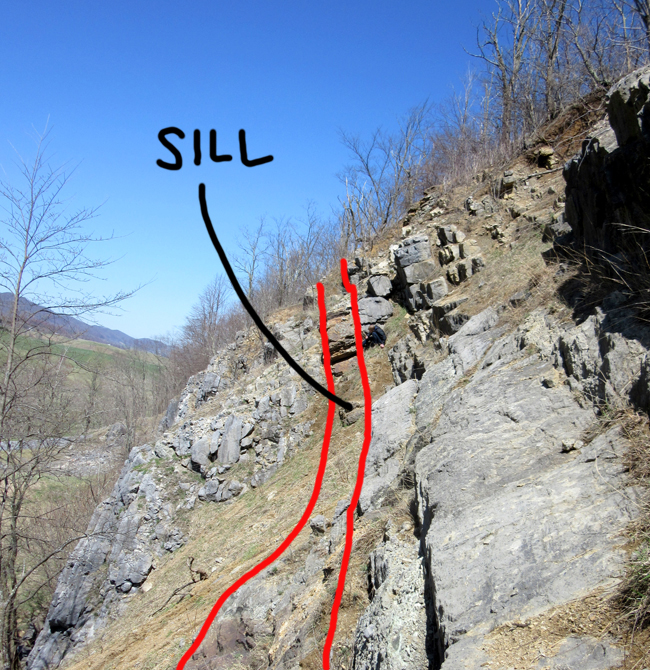
Closer…

Closer…

Annotated:
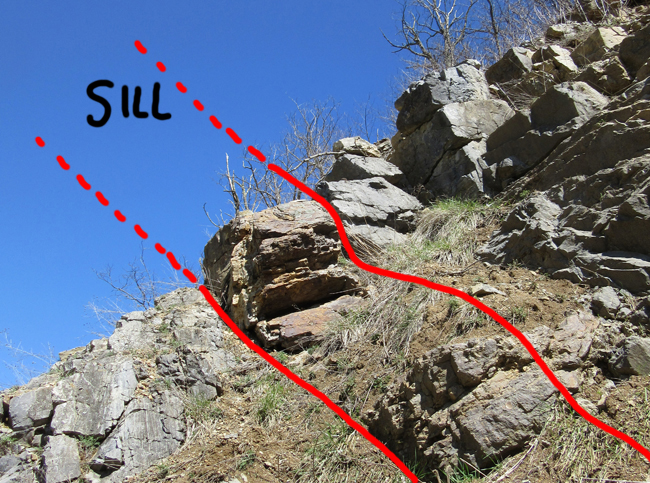
GMU student for scale:
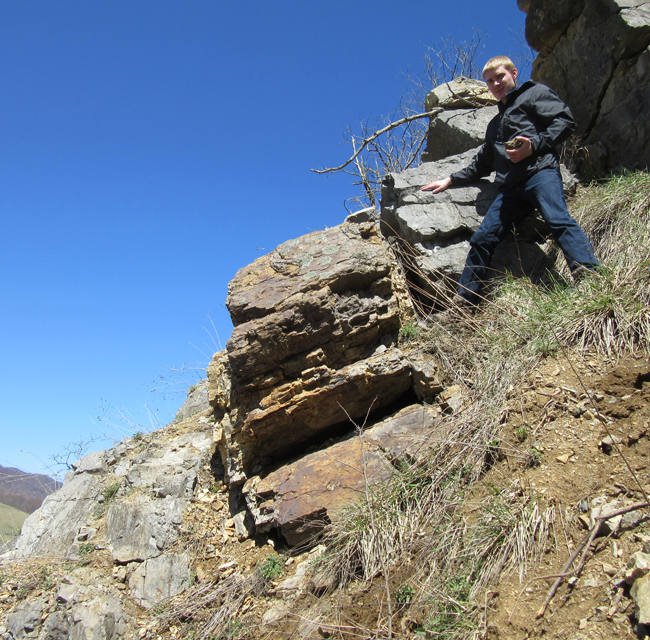
Western contact of sill with host limestone strata (taken looking along strike):

Eastern contact of sill with host limestone strata (taken looking across strike):

Close-up views of porphyritic texture of the felsite:
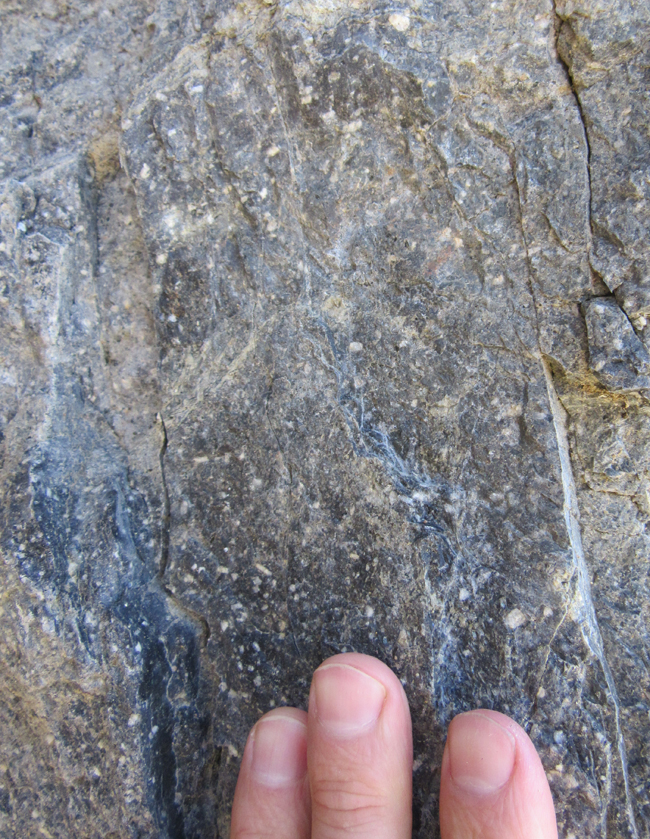

Rounded xenolith included in felsite sill:
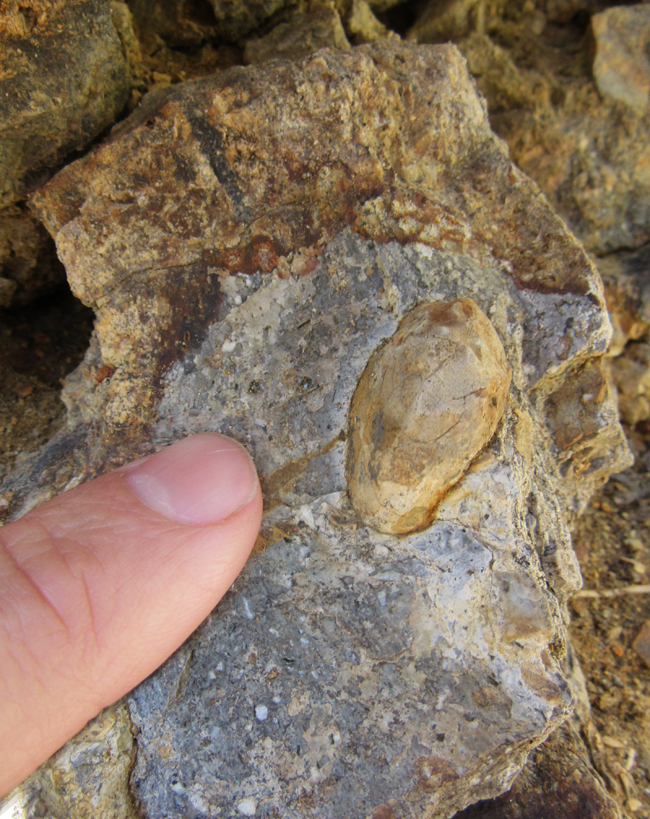
Several xenoliths (intrusion breccia) along eastern side of sill:
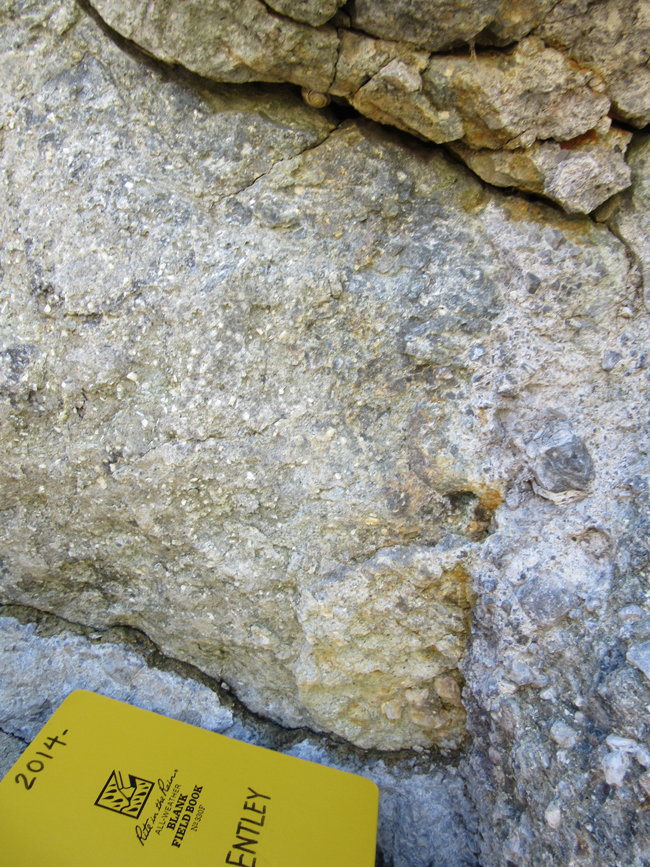
Looking back along strike to the south, from the middle of the sill toward the rounded outcrop of sill in the middle of the quarry:
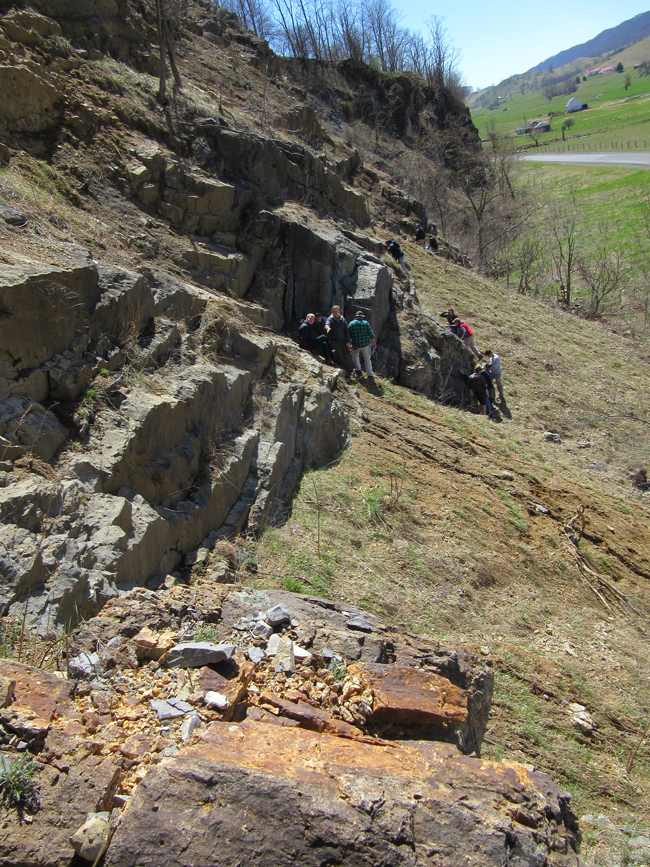
Closer to the middle of the quarry is the mafic dike. Here it is: The mafic dike is almost perfectly perpendicular to the sill (and, thus, to bedding). It is vertical:
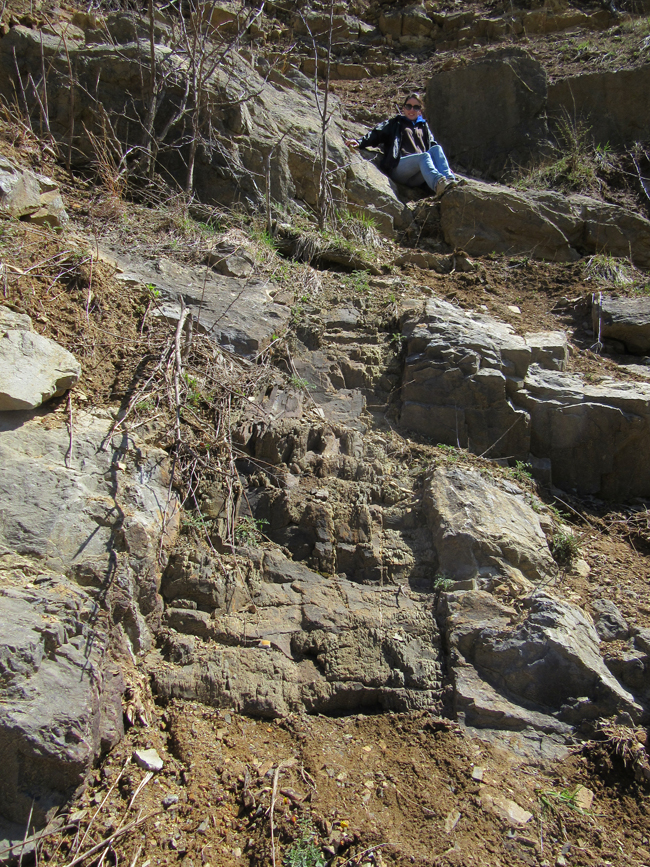
Close-up view:
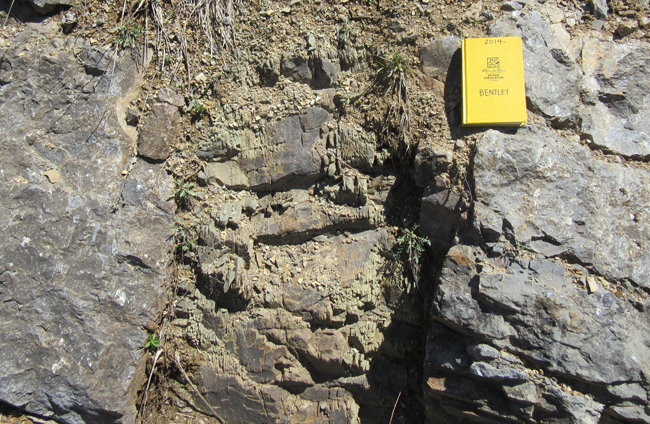
What’s the deal with this suite of bimodal intrusive rocks? Like Mole Hill in Harrisonburg, they were intruded during the Eocene, around 45 million years ago. Did the lithospheric mantle beneath this region delaminate then? Did a little hotspot punch up? We’re not sure. These rocks are a bit of a mystery for the time being…
